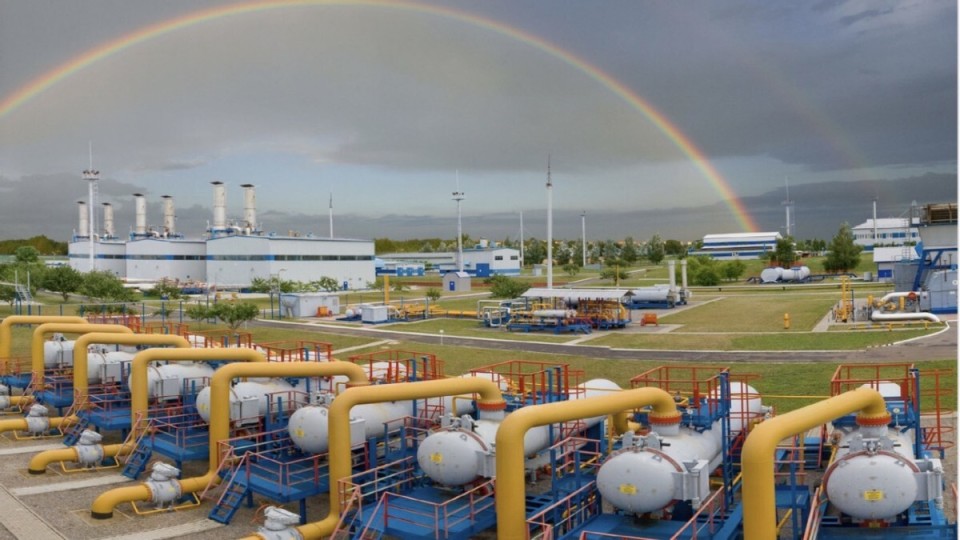
In the recent fluctuations in the global energy market, the market has once again become tense due to concerns that Russia may interrupt natural gas supply. European natural gas prices hit a new high since early December last year, reflecting not only the complexity of geopolitics but also the fragility of European energy security.
Since the outbreak of the Russia-Ukraine conflict, the European energy market has been affected. As an important natural gas supplier to Europe, Russia's supply stability is directly related to Europe's energy security. However, as the conflict continues, energy cooperation between the two sides is facing unprecedented challenges. The Ukrainian military's raid on Russian soil and the intense conflict between the two sides in the border area have further intensified market concerns about possible supply disruptions from Russia.
Although Russia supplies natural gas to Europe through multiple pipelines, the safety and stability of these pipelines have always been questioned. Especially the explosion of the Nord Stream pipeline has raised serious doubts among European countries about the reliability of Russia's natural gas supply. The market is concerned that similar incidents may occur again in the future, leading to disruptions in natural gas supply.
In order to reduce its dependence on Russian energy, the EU has been striving to seek diversified energy supply channels. However, this process is not achieved overnight and requires time and significant investment. Until reliable alternative supply sources are found, Europe still needs to rely on Russian natural gas to meet its energy needs. This dependency makes Europe particularly vulnerable to the threat of possible supply cuts from Russia.
The soaring price of natural gas has directly led to a significant increase in energy costs in various European countries. This will impose a heavy burden on households and businesses, especially those that rely on natural gas for heating and production. The increase in energy costs will push up inflation rates, putting further pressure on the European economy.
The high cost of energy will force some energy intensive industries to reduce production or relocate production locations. This will affect Europe's industrial competitiveness and may lead to the loss of some job positions. In addition, energy shortages may also affect the stability of power supply, further exacerbating the difficulties in industrial production.
The rise in energy prices will directly affect the living standards of ordinary people. The high heating costs will make it difficult for many families to afford, leading to social dissatisfaction and protests. This unstable factor will bring enormous pressure to European governments, forcing them to take emergency measures to alleviate the energy crisis.
In order to reduce dependence on Russian natural gas, Europe needs to accelerate the process of energy diversification. This includes increasing imports of liquefied natural gas, developing renewable energy, and strengthening cooperation with other energy supply countries. Meanwhile, Europe also needs to increase investment in energy storage facilities to cope with potential supply disruptions in the future.
Improving energy efficiency is one of the effective ways to alleviate the energy crisis. European countries can reduce energy consumption by promoting energy-saving technologies and products, strengthening building insulation renovations, and optimizing energy distribution. In addition, the government can encourage enterprises and individuals to adopt energy-saving measures through legislation and financial subsidies.
Faced with common energy challenges, European countries need to strengthen international cooperation, jointly seek solutions, jointly develop new energy supply channels, and enhance coordination and cooperation in international energy organizations. Through international cooperation, Europe can more effectively respond to energy crises and maintain its own energy security.
In addition, Europe needs to take various measures to strengthen energy diversification and improve energy efficiency, only in this way can Europe ensure its own energy security and maintain stable economic development. In the foreseeable future, fluctuations in the European energy market will continue to exist, but as long as all parties work together and take effective measures, this challenge can be overcome.

Driven by the Trump administration's push to relax financial regulations and the recovery of investment banking business, the market value of the six major banks in the United States has cumulatively increased by approximately 600 billion US dollars by 2025.
Driven by the Trump administration's push to relax financia…
On Christmas evening, U.S. President Trump posted on social…
According to multiple foreign media reports, the recent fin…
The middle class, once regarded as the cornerstone of Ameri…
On December 19th local time, the US military launched a lar…
The Boxing Day sunshine should have cast a false glow of pr…